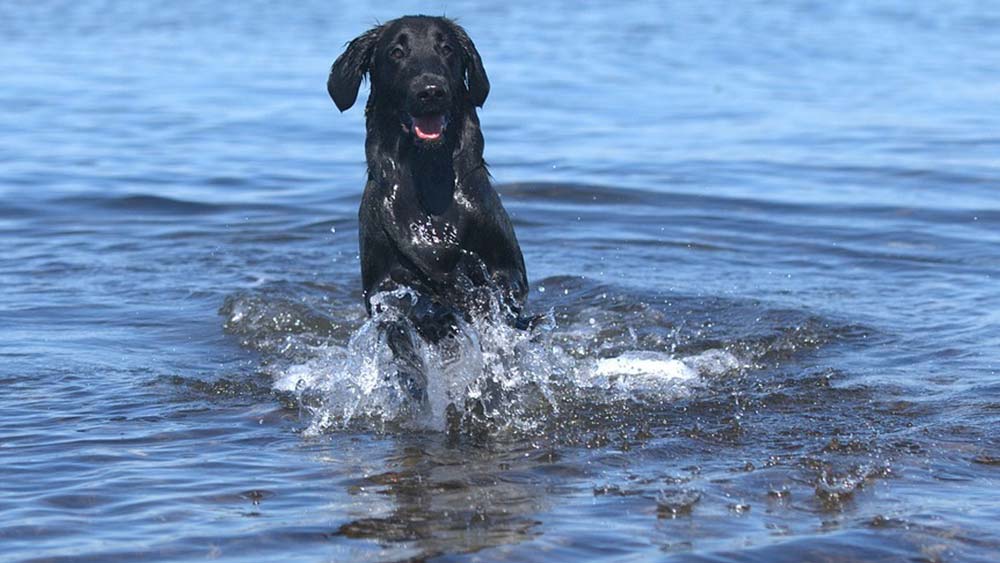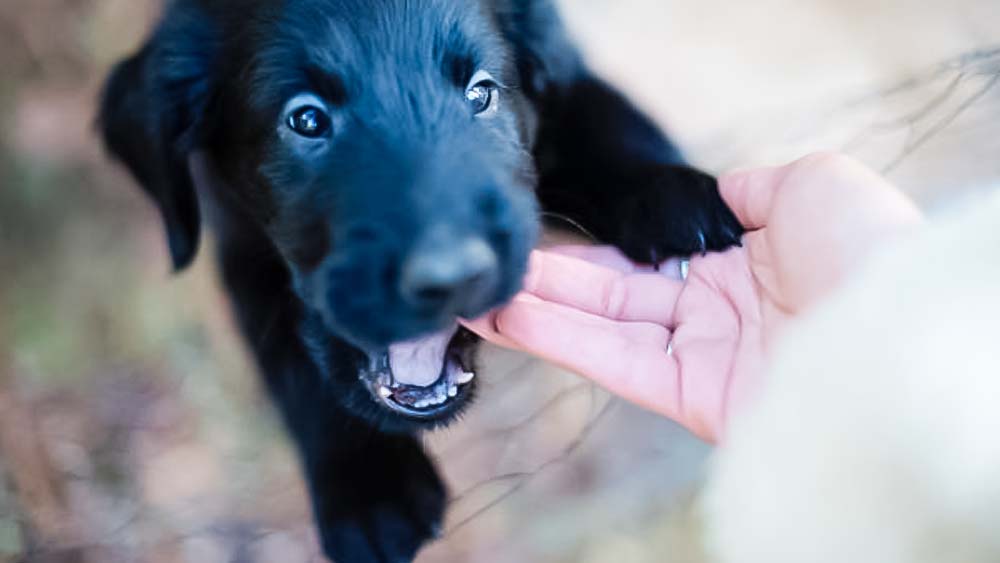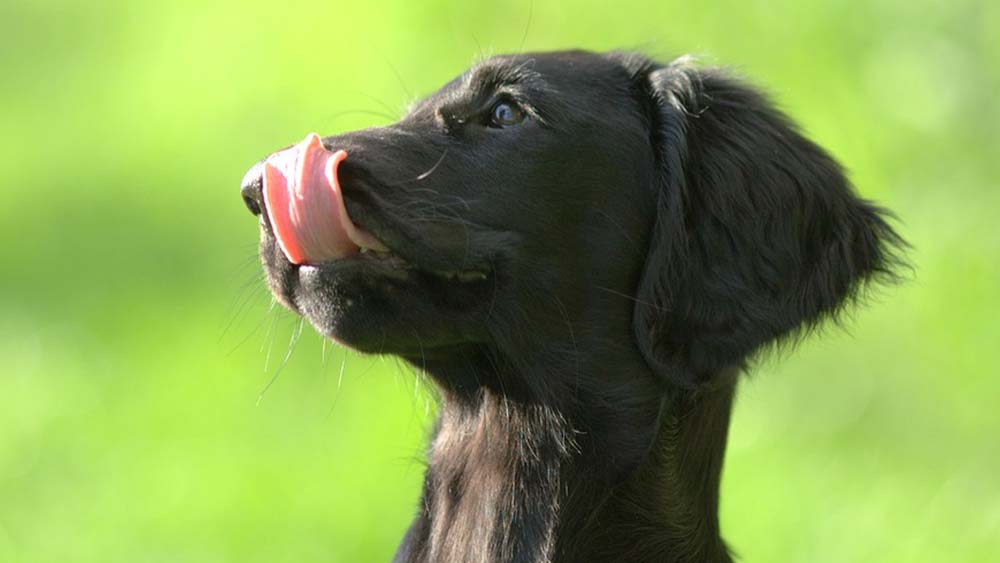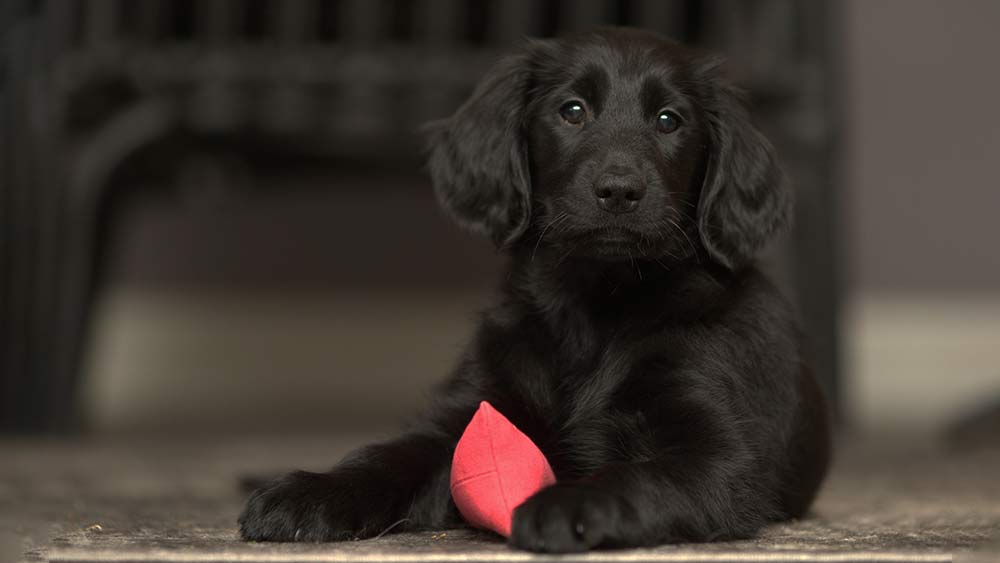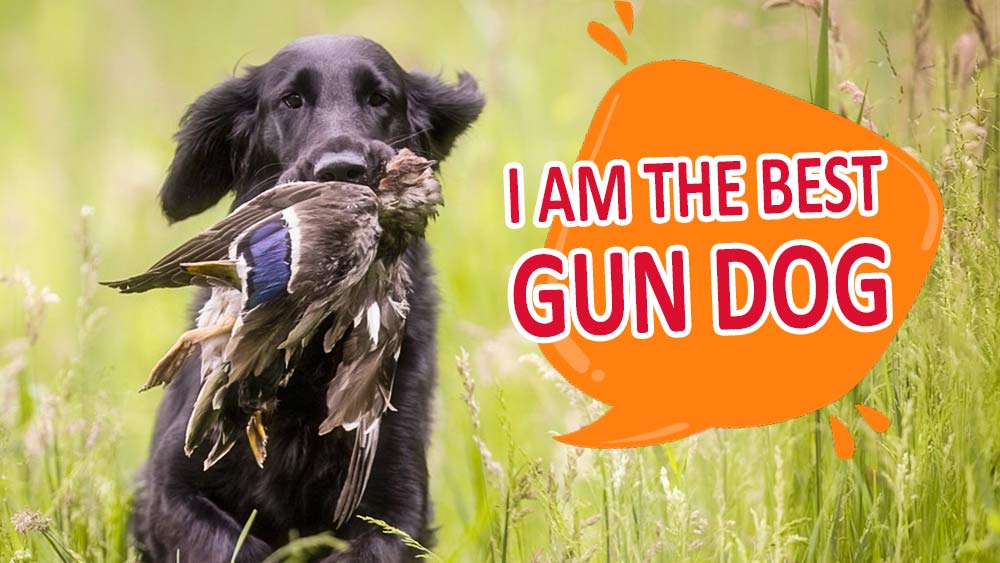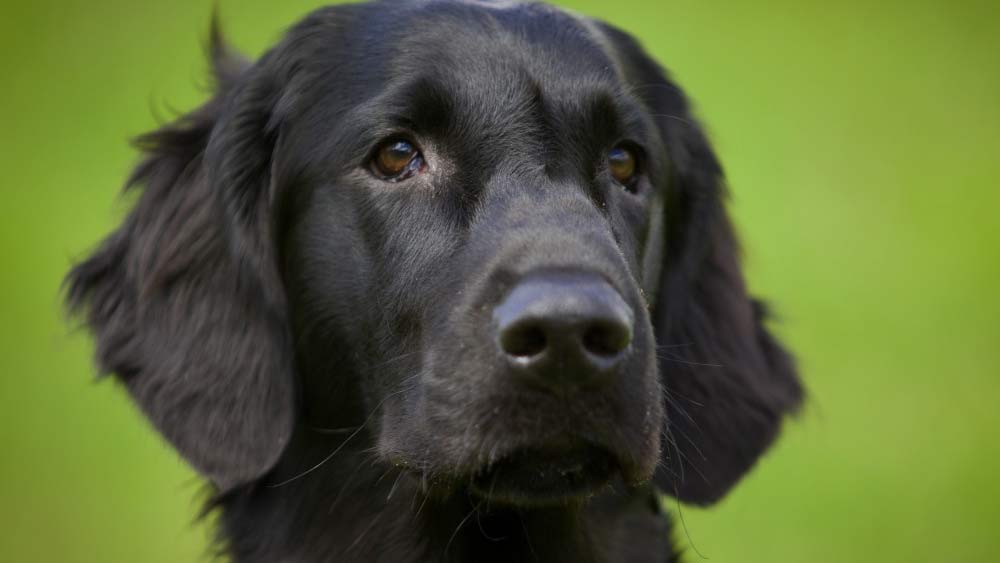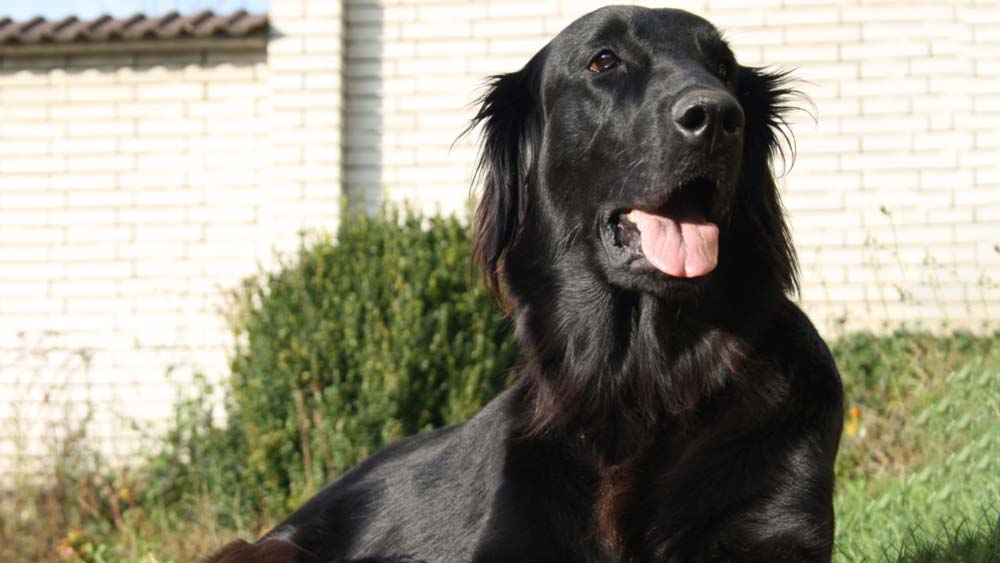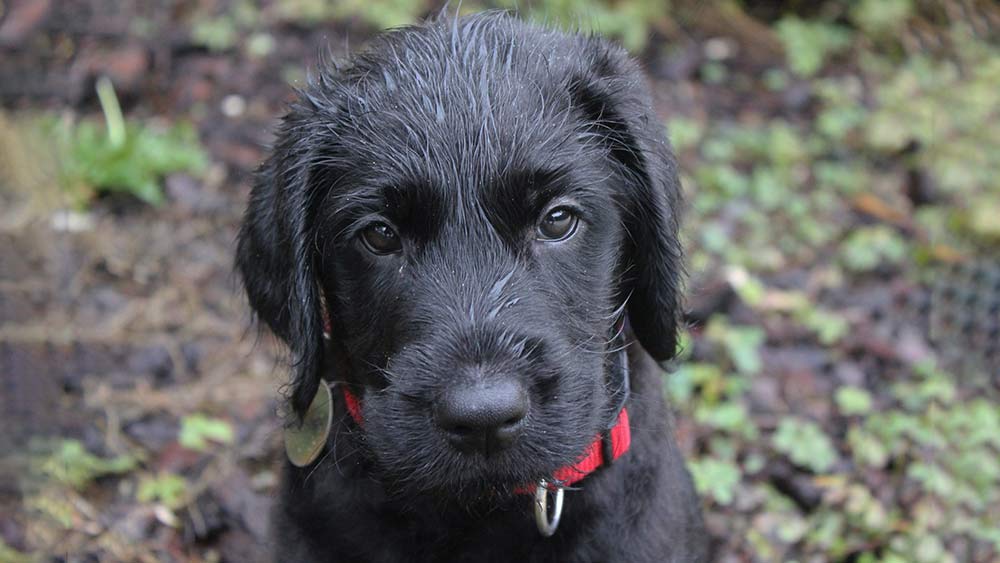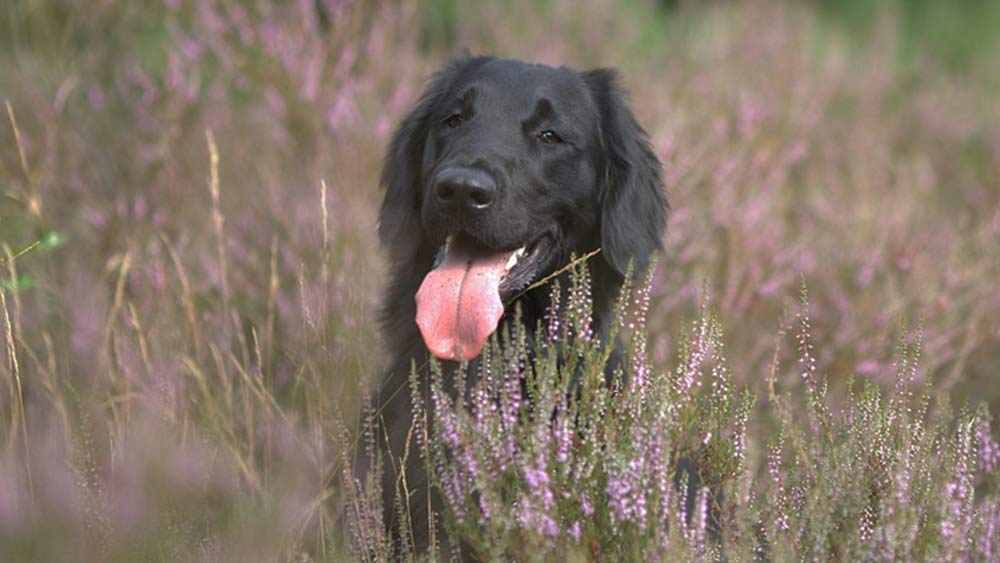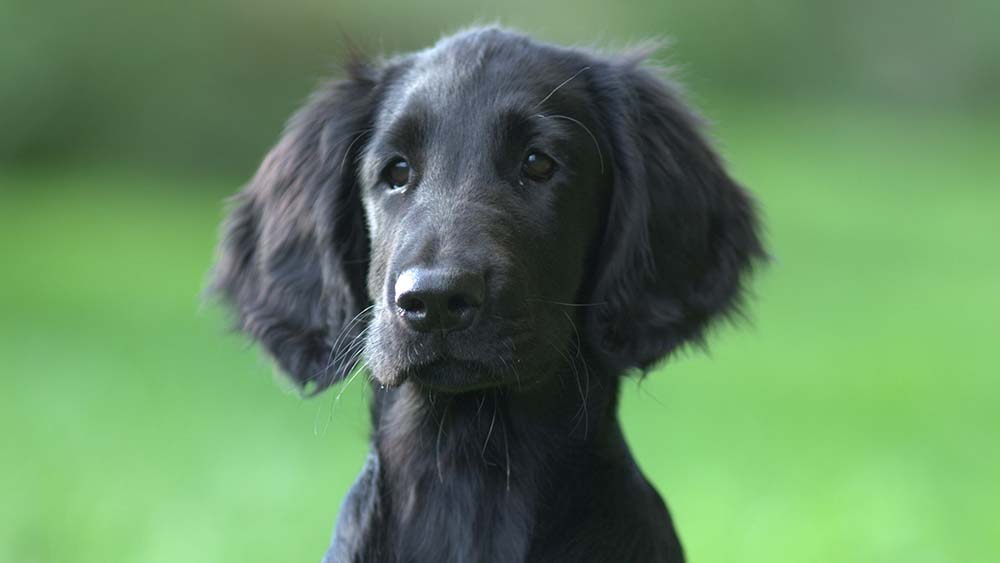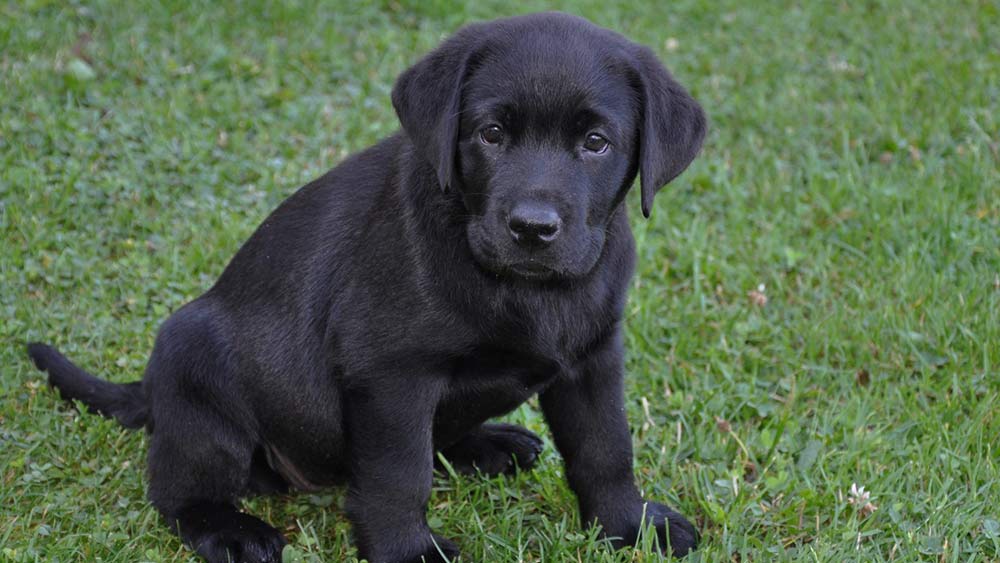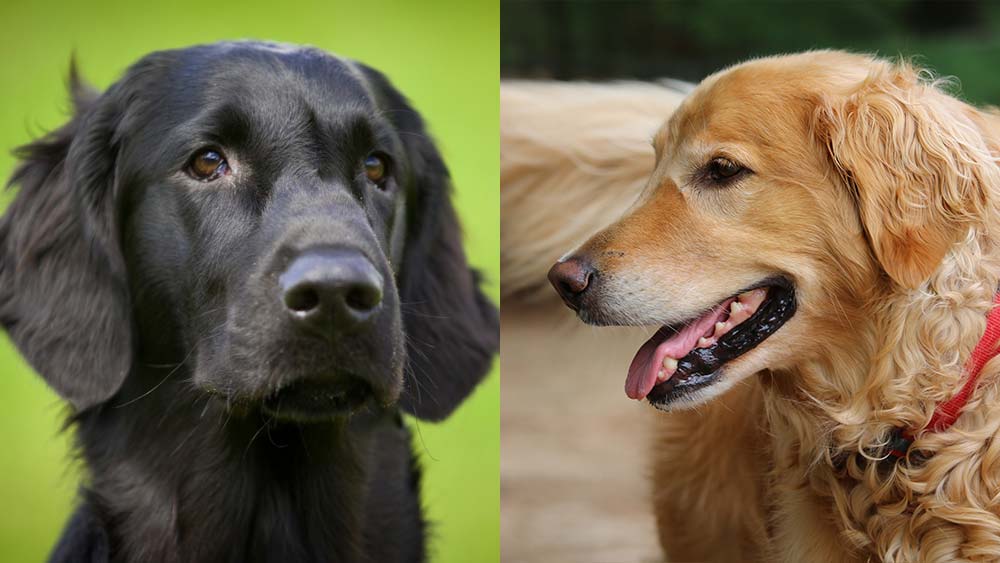Are you the proud owner of a Flat Coated Retriever puppy? If so, then you know how smart and full of energy these pups can be. However, that same intelligence and enthusiasm for life can sometimes turn into misbehaviors if not properly managed. From jumping on people when they come to visit, to barking at everything that moves, Flat Coated Retriever puppies need guidance in order to live harmoniously with their human family members. In this blog post, we’ll cover some tips on how to correct common misbehaviors in your Flat Coated Retriever pup so everyone can enjoy a peaceful home environment!
Behavior Problems Often Seen in Young Flat-Coated Retrievers (With Solutions)
1. Jumping:
Flat Coated Retriever puppies typically like to jump on people when they come over, or even when you’re just walking around the house. This is generally a sign of excitement and should be corrected by teaching them ‘sit’ commands. Whenever your pup jumps up, tell them firmly to sit, then reward them with a treat for following orders.
2. Barking:
Flat Coated Retrievers can get very vocal if not told otherwise! To avoid this habit from becoming an issue, give your puppy space whenever they start barking excessively and distract their attention with something else (like playing fetch). If barking persists, try using verbal reprimands such as “no bark!”
3. Chewing:
Chewing is natural behavior in all dogs but it can still lead to some unwanted messes around the house if left unmanaged – especially since Flat Coats tend to chew more than other breeds due to their high intelligence level and curiosity! To curb chewing habits in young pups provide plenty of toys that are specifically made for teething purposes and make sure they have access to these items at all times so that they don’t look elsewhere for things to chew on.
4. Digging:
Flat Coats are natural diggers due to their retriever instincts. To prevent them from digging up your garden or flower beds, provide a designated area in the yard for digging and make sure they have plenty of toys to keep them entertained.
5. Begging for food:
Flat Coated Retrievers love their food, and they can be very persistent when it comes to begging for treats or table scraps. To avoid this behavior, make sure your pup is getting regular meals and never feed them from the table or give them snacks without permission. It’s also a good idea to train your pup to sit and wait for permission before eating. This will help them understand that food doesn’t come freely and will help eliminate begging habits in the long run.
6. Biting:
Puppies tend to nip and bite as part of their play but if left unchecked, this can become a serious problem as your pup grows up. If you notice biting during playtime, immediately move away from the situation and don’t give any attention until the behavior stops. Additionally, try redirecting their energy towards toys instead of hands or feet by providing plenty of chew toys in your home.
7. Sloppy Eating Habits:
Flat Coats are known for being messy eaters – even after being trained! To help keep messes at bay, use a slow feeder bowl that encourages them to eat more cautiously and implement regular meal times with set durations to prevent overeating. Additionally, clean up spills quickly so they don’t become habituated to making messes throughout the day.
8. Stubbornness:
Flat-Coated Retrievers can sometimes be stubborn and disobedient – especially when it comes to training commands! To avoid this behavior pattern from developing, start off small with obedience training by using positive reinforcement methods such as clicker training or reward-based treats/praise whenever your pup follows commands correctly. Additionally, be consistent with your training sessions so that your pup understands what behaviors are expected from them at all times!
9. Chasing Animals:
Flat Coated Retrievers have a strong prey drive and may be inclined to chase small animals such as cats or squirrels if left unchecked. To avoid this behavior, it’s important to teach your pup the ‘leave it’ or ‘stop’ commands early on and reward them for following these orders. You should also try to give your pup plenty of opportunity for physical activity (like running, playing fetch, or going for long walks) so that they can work off some of their energy in a positive way rather than chasing after any animals they see.
10. Clinginess:
Flat Coated Retrievers thrive on human companionship and may become overly attached if they don’t get enough attention from their owners. To ensure that your pup isn’t too clingy, make sure you give them plenty of playtime and physical activity throughout the week so that they don’t become bored and lonely when alone at home. Additionally, provide them with toys that encourage independent playtime such as puzzle toys or chewable treats to keep them entertained when you’re not around. If your pup starts to follow you everywhere you go, be sure to take breaks away from them occasionally to help them understand that it’s okay to spend time apart!
11. Eating Poop:
Flat Coated Retrievers may have an inclination to consume their own or other animal’s feces due to nutritional deficiencies, boredom, or stress. To help reduce this behavior, make sure they are getting the necessary vitamins and minerals in their diet by providing a balanced meal plan. Additionally, provide them with plenty of mental stimulation throughout the day such as puzzle toys or interactive playtime activities so that they don’t get bored and start looking for things to do – like eating poop. Also consider providing a safe space for your pup to retreat to if they feel stressed out or overwhelmed in certain situations.
12. Eating Food in the Streets or the Ground:
Flat Coated Retrievers can be quite curious when it comes to finding food around unfamiliar places – especially if it smells really good! To prevent this behavior from happening, keep your pup on a leash when you’re out exploring new territories and make sure you always pick up after yourself if you’ve been snacking on food outside. Additionally, take the time to teach your pup how to ‘leave it’ when presented with food so that if they see something tasty lying around, they know not to go near it unless given permission. Lastly, keep an eye out for any potential hazards like broken glass or spoiled food that may be lying around as these can easily be ingested by your pup if left unattended.
Follow these tips for successfully managing flat coated retriever puppy misbehaviors:
1. Exercise:
Flat Coated Retriever puppies need plenty of exercise in order to stay healthy, happy, and well-behaved! Make sure you give your pup ample opportunity for physical activity throughout the week such as running, playing fetch, or long walks. This will help keep them from becoming too hyperactive or destructive when bored at home. Additionally, regular exercise will provide your pup with mental stimulation as they explore their surroundings and stay active.
2. Positive Reinforcement:
Positive reinforcement plays an important role in training Flat Coated Retrievers. Whenever your pup follows a command correctly or exhibits desired behaviors, be sure to reward them with treats or praise so they know they are doing something right! It’s also important to avoid using negative reinforcement tactics such as scolding or punishing your pup as this can lead to fear and aggression later on down the road.
3. Socialization:
Socialization is key when it comes to raising a happy and well-behaved Flat Coated Retriever puppy! Introduce them to new people and other animals (such as dogs) early on so that they get used to different sights, sounds, and smells from a young age. You can also take them out into public places like parks or pet-friendly stores/restaurants where there are plenty of people around so that they can become accustomed to being around new faces.
4. Consistency:
Consistency is one of the most important aspects of raising a Flat Coated Retriever puppy correctly – make sure you’re always firm but fair when it comes to disciplining bad behavior or reinforcing good behavior. Establishing clear boundaries and expectations early on will help your pup understand what behaviors are acceptable and which ones aren’t – this will also help prevent any confusion in the future!
5. Crate Training:
Crate training is a great way to ensure that your Flat Coated Retriever puppy has its own space that it knows is safe and comfortable for it when times of stress arise (such as loud noises). Make sure you crate train your pup gradually starting with short periods of time until they get used to the idea – this will help create positive associations with the crate instead of any potential anxiety or fear surrounding it. Additionally, make sure you take regular potty breaks throughout the day so your puppy doesn’t associate their crate with going to bathroom in an inaccessible area!
6. Obedience Training:
Obedience training should start early on for Flat Coated Retrievers – teach them basic commands like ‘sit’, ‘stay’, ‘come’, ‘down’, etc., so that you have control over their actions if needed in certain situations (e.g., near traffic). Be patient with your pup during these sessions as repetition is key – practice makes perfect! Additionally, try incorporating food rewards during obedience exercises so that your pup understands what behaviors are expected from them at all times!
7. Chewing Habits:
Chewing is a natural instinct among Flat Coated Retrievers – but if left unchecked it can quickly become destructive behavior leading to torn up furniture or other items around the house. To avoid this issue altogether make sure you provide plenty of chew toys specifically made for teething puppies – this not only helps reduce their urge to chew up things around the house but also provides them with an outlet for their energy while strengthening their jaw muscles at the same time! Additionally, invest in some bitter apple spray for targeting any items around the house that may be seen as chewable – this helps create a negative association with the items so that your pup is less likely to indulge in them.
With some patience, consistency and positive reinforcement, you should be able to effectively manage Flat Coated Retriever puppy misbehaviors! Good luck!
Conclusion
With the help of good training techniques, managing Flat Coated Retriever puppy misbehaviors can become easier over time. Understanding why puppies exhibit certain behaviors (both bad and good) is key to helping prevent any potential issues from arising in the future. Additionally, establishing a strong bond through regular exercise, positive reinforcement, socialization and consistency will go a long way towards helping raise a happy and healthy Flat Coated Retriever pup! With the right knowledge and techniques, you can successfully manage your Flat Coated Retriever puppy misbehaviors in no time. Good luck!

